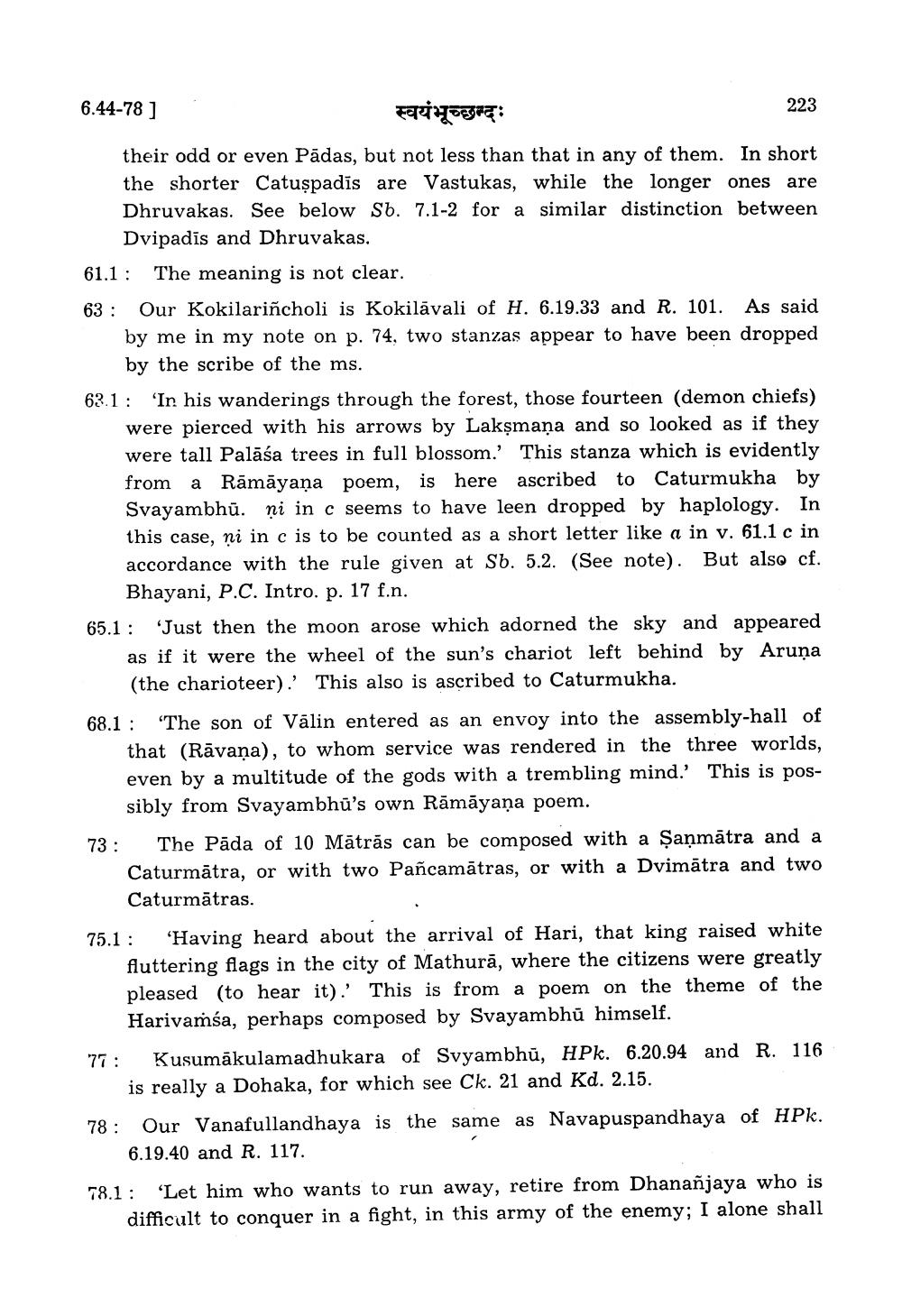________________
6.44-78 ]
स्वयंभूच्छन्दः
223
their odd or even Pādas, but not less than that in any of them. In short the shorter Catuspadis are Vastukas, while the longer ones are Dhruvakas. See below Sb. 7.1-2 for a similar distinction between
Dvipadis and Dhruvakas. 61.1: The meaning is not clear. 63: Our Kokilariñcholi is Kokilāvali of H. 6.19.33 and R. 101. As said
by me in my note on p. 74, two stanzas appear to have been dropped
by the scribe of the ms. 63.1: 'In his wanderings through the forest, those fourteen (demon chiefs)
were pierced with his arrows by Laksmana and so looked as if they were tall Palāśa trees in full blossom.' This stanza which is evidently from a Rāmāyaṇa poem, is here ascribed to Caturmukha by Svayambhü. ni in c seems to have leen dropped by haplology. In this case, ni in c is to be counted as a short letter like a in v. 61.1 c in accordance with the rule given at Sb. 5.2. (See note). But also cf.
Bhayani, P.C. Intro. p. 17 f.n. 65.1: Just then the moon arose which adorned the sky and appeared
as if it were the wheel of the sun's chariot left behind by Aruņa (the charioteer). This also is ascribed to Caturmukha.
68.1: "The son of Vālin entered as an envoy into the assembly-hall of
that (Rāvana), to whom service was rendered in the three worlds, even by a multitude of the gods with a trembling mind.' This is possibly from Svayambhu's own Rāmāyaṇa poem.
73: The Pāda of 10 Mātrās can be composed with a Sanmātra and a
Caturmātra, or with two Pañcamātras, or with a Dvimātra and two Caturmatras.
75.1: 'Having heard about the arrival of Hari, that king raised white
fluttering flags in the city of Mathurā, where the citizens were greatly pleased (to hear it). This is from a poem on the theme of the Harivaṁśa, perhaps composed by Svayambhū himself.
77: Kusumäkulamadhukara of Svyambhū, HPk. 6.20.94 and R. 116
is really a Dohaka, for which see Ck. 21 and Kd. 2.15. 78: Our Vanafullandhaya is the same as Navapuspandhaya of HPk.
6.19.40 and R. 117.
78.1: 'Let him who wants to run away, retire from Dhanañjaya who is
difficult to conquer in a fight, in this army of the enemy; I alone shall




